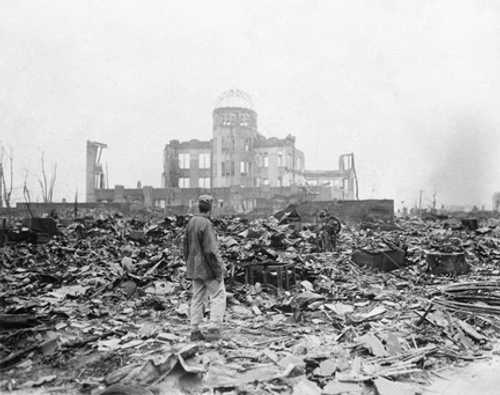
US Marines
Victims of neglect
When the servicemen returned to the United States, many of them suffered from strange rashes and sores. Years later some were afflicted with disease (such as thyroid problems and leukemia) or cancer associated with radiation exposure. Little could be proven beyond a doubt, and all of their disability and compensation claims were denied. ”……..Most of the [U.S.]troops in Hiroshima were based in camps on the edge of the city, but a larger number did set up camps inside Nagasaki. Because of the alleged absence of residual radiation, no one was urged to take precautions. Some bunked down in buildings close to ground zero, even slept on the earth and engaged in cleanup operations, including disposing bodies, without protective gear. Few if any wore radiation detection badges. “We walked into Nagasaki unprepared…. Really, we were ignorant about what the hell the bomb was,” one soldier would recall. Another vet said: “Hell, we drank the water, we breathed the air, and we lived in the rubble. We did our duty.” A marine named Sam Scione, who had survived battles on Guadacanal, Tarawa and Okinawa, now arrived in Nagasaki, sleeping first in a burned-out factory, then a schoolhouse. “We never learned anything about radiation or the effects it might have on us,” he later said. “We went to ground zero many times and were never instructed not to go there.” A year later, on his return to the United States, his hair began to fall out and his body was covered in sores. He suffered a string of ailments but never was awarded service-related disability status. The occupying force in Nagasaki grew to more than 27,000 as the Hiroshima regiments topped 40,000. Included were many military doctors and nurses. Some stayed for months. The US Strategic Bomb Survey sent a small group of photographers to take black-and-white photos of blast effects. By all accounts the Americans were charmed by the Japanese, thankful that the bomb might have helped end the war and profoundly affected by what they witnessed. “In the back of our minds, every one of us wondered: What is this atomic bomb?” a Nagasaki veteran later testified. “You had to be there to rea1ize what it did.” After describing the horrors, he added: “We did not drop those two [bombs] on military installations. We dropped them on women and children…. I think that is something this country is going to have to live with for eternity.”…… greetz,brummbar
4464 Views
11/29/2011
